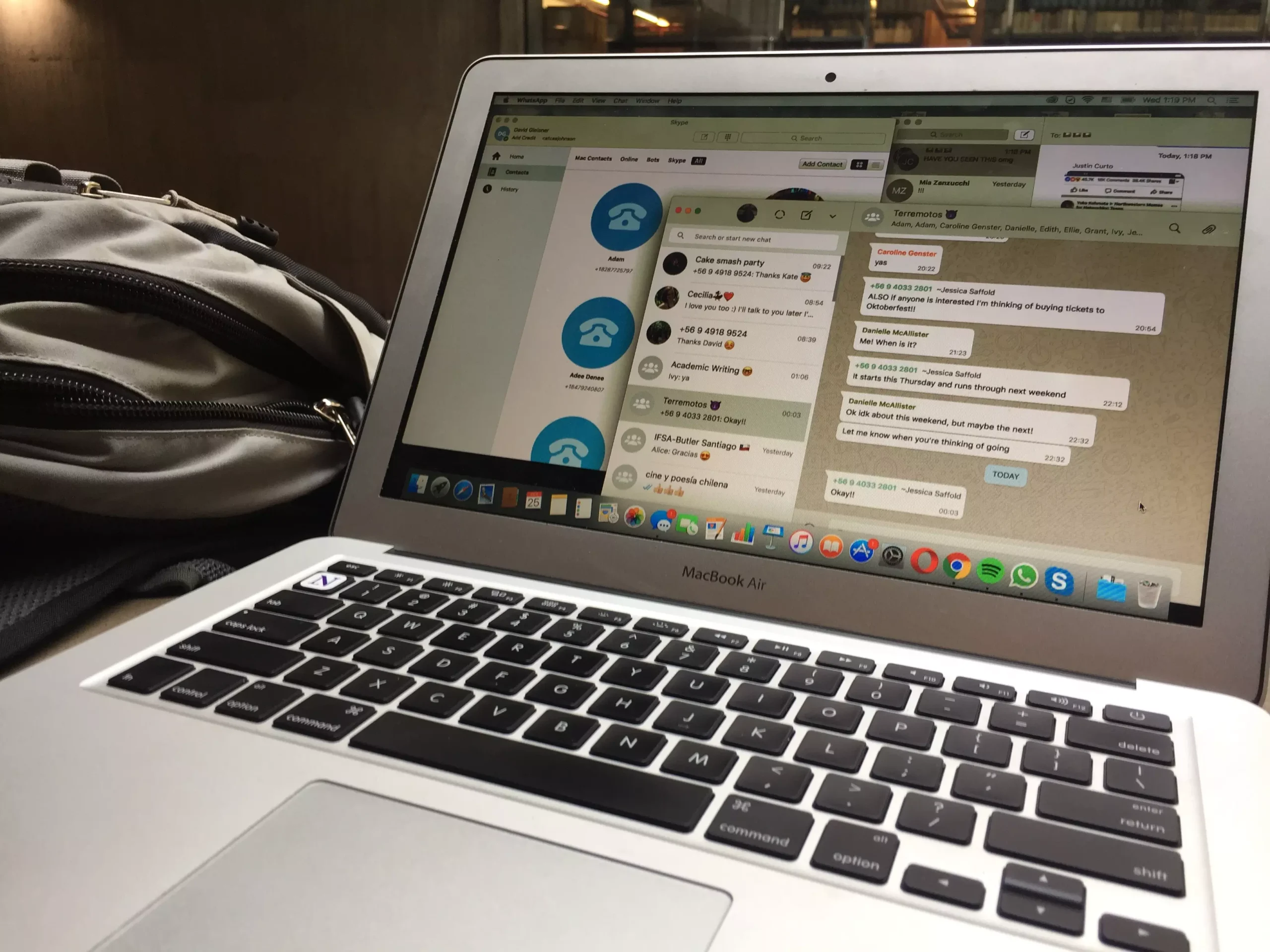5 Tips to Stay Connected to Home While Abroad


Talking about all the exploration, learning and immersion that a study abroad experience can bring, it’s easy to forget the reality that it also involves being away from friends, family and home for months. In one way or another, every student will experience homesickness and loneliness – but that doesn’t have to inhibit all the benefits that come from living abroad. Staying connected to home is easier now than ever before, and the comfort it brings can help you feel more confident and open during your time abroad.
Tip 1: WhatsApp
WhatsApp is the most popular messaging app in more than half of the world’s countries, so chances are wherever you go, you’ll wind up using it at some point or another. The fact that you’ll be using it to connect with people in your host country means it’s also the perfect tool to connect to friends and family back home.
I had never used the app before coming abroad, but just before I left, my family, friends and I installed the app and created group chats to share experiences. With photos, anecdotes and funny tweets, we are able to keep in tune with each other’s lives from thousands of miles away. For example, even though I’m not on campus, I’m still able to hear the stories of my friends’ new tattoos, updates on campus construction and all the drama behind the election of the new editor in chief of my campus publication.
Tip 2: Skype or other video call platforms
Being able to talk face-to-face with people back home is an amazing experience, and with a phone or laptop, an internet connection and a video call platform, it is incredibly easy. Nothing beats a face-to-face conversation, and that experience is attainable even while thousands of miles apart with a video call.
Skype, Facebook Messenger, Google, Whatsapp, Facetime – there are so many options to choose from. For a group, Google Hangouts allows as many as 25 users to video chat at a time, meaning conversations with your friend group or family are a breeze. Skype, Whatsapp, Facetime and Messenger all provide a smooth, connected experience; I personally prefer Whatsapp on my phone and Messenger on my laptop. Being able to see the faces of the ones you love is absolutely invaluable amidst all the confusion and stress that study abroad can bring – seeing my sister practice her Spanish with my host mom was the perfect remedy to a stress-filled week – and with modern video calling capabilities, it is easy as ever.
Tip 3: Send a postcard or letter
As fast and easy as modern technology is, nothing beats a handwritten postcard from your host country. With a bright, beautiful photo of your study abroad location and a heartfelt note, the gesture can mean a lot for friends and family back home. You can find postcards in shops in most city centers, making it an easy, accessible way to let your loved ones back home know you’re thinking about them.
In Chile, an international stamp to send a postcard to the United States costs less than $1 USD. Most local post offices will be happy to help with sending mail back home, and wherever you are, a small, light postcard will be a great way to send a small gift back home.
Tip 4: Try to find a favorite American food
Globalization means that wherever you study abroad, you can probably find a McDonald’s, Subway or Starbucks close by. Sure, a big part of immersion is eating the local cuisine, but everyone likes a taste of home sometimes. If you can’t find your favorite dish at a restaurant, try cooking or baking a recipe from back home with ingredients found at the local grocery store. Not only will you get the joy of the familiar, delicious dish, you’ll be able to share the flavors of home with your host family. (Hint: French Toast on a Saturday morning is a delicious and easy surprise for a family who may never have eaten it.)
Tip 5: Bring memories of home
As you worry about what clothes you’re going to need, how much toothpaste you should pack and what time you’ll need to get to the airport, it’s also a good idea to pack a few mementos from home. Obviously, the biggest question here is luggage space, and it’s best not to bring anything too valuable out of the risk of it being lost or stolen, but there are always small, packable items that can help you remember home. For me, that meant bringing two framed pictures, my favorite watch and – yes I’ll admit it – a stuffed bear. A small family photo, a favorite toy or game, a family heirloom – these trinkets can help add a little life to your new bedroom.
Study abroad is a time to be thrown into a new culture, country and way of life, and the benefits that come from that immersion are immense. To make the most of your time in a new culture and in many cases a new language, it’s important to embrace the challenges that come with living in a different country. At the same time, things can get a bit overwhelming at times and a taste of home is often the perfect remedy. Every student is different, but with modern technology, the world is smaller than ever, and the balance between enjoying your time abroad and staying connected with home is attainable for anyone.
David G. | Journalism and International Studies major | Northwestern University | Chilean Universities Program, Santiago | Fall 2017 | IFSA International Correspondent